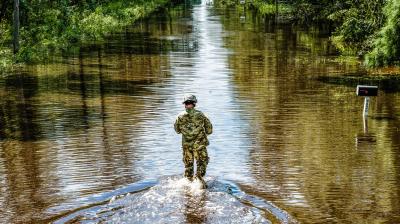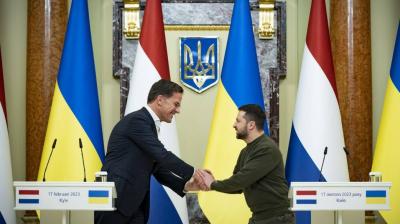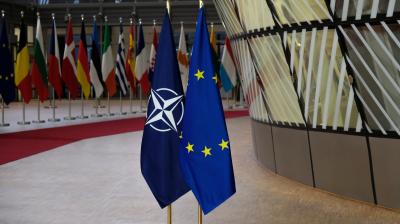Countering hybrid threats
Russia’s war in Ukraine has fundamentally changed the international order that is based on norms and values of state sovereignty and international law. While the Balkan wars in the nineties were the result of internal turmoil leading to the collapse of Yugoslavia, the Russian-Ukrainian armed conflict marks the return of large-scale interstate warfare in Europe for the first time since the end of the Second World War. A year after the Russian invasion was launched on 24 February 2022, valuable lessons can already be drawn for the characteristics of modern warfare. The conflict has shown – both in the run-up to the invasion as well as after the start of the war – that non-military aspects are part of Russia’s strategy. Well-known examples are the abuse of the European ‘oil and gas dependency’ on Russia, the spread of disinformation, cyberattacks and the channelling of refugees and migration flows. What these means have in common is that they are aimed at undermining the unity of the West and destabilising their societies and democracies. This very complex set of hybrid threats raises new questions on how to respond to them, as the hybrid domain requires the involvement of many different actors at the national and international level: from various ministries and even private companies (such as the energy sector) to the EU and NATO.
As hybrid challenges have become an integral part of modern conflict, the question has arisen what kind of role should be laid down for the armed forces. Hybrid challenges are very often of a transboundary and non-military nature. Therefore, they have to be addressed primarily by civil actors. But in addition, the military can also play a role in countering hybrid threats, and this raises the question of the role of multinational (military) formats such as the Joint Expeditionary Force (JEF). The JEF is a multinational military formation of northern European countries with the United Kingdom as the lead nation. Since 2019, the JEF has increasingly focused its activities on the hybrid domain. The war in Ukraine has been a catalyst for increased cooperation in the JEF context at the political, policy and military operational levels. The Russian threat, both physically (conventional forces) and virtually/digitally, has become the main focus of attention. It is in the latter category of threats that the JEF Nations are struggling with the question of what its role should be.
This report explores the possible role of the JEF in hybrid conflicts and how cooperation in the JEF can be attained. The first chapter addresses the role of military forces in responding to hybrid threats and what the JEF has realised in this context so far. Particular attention will be given to the challenges of but also the opportunities for connecting military activities with those of non-military actors. The second chapter focusses on the roles of NATO and the EU in the hybrid domain and how the JEF could relate to the efforts of these international organisations. The potential impact of the future NATO membership of Finland and Sweden – both JEF Participating Nations – is also addressed. The third chapter zooms in on the potential of the JEF’s role and functions in the hybrid domain and how this should be implemented. The growing political character of the JEF cooperation is also addressed. The report ends with a list of conclusions and recommendations for the Netherlands.
The methodology used for this report consists of a mix of literature research and a series of interviews with government representatives and members of think tanks in a selection of JEF Nations as well as with staff officers at the JEF Headquarters, at the NATO Headquarters and at EU institutions. These interviews were held under the application of the Chatham House rule. The authors are grateful to all interviewees for their valuable contributions.







